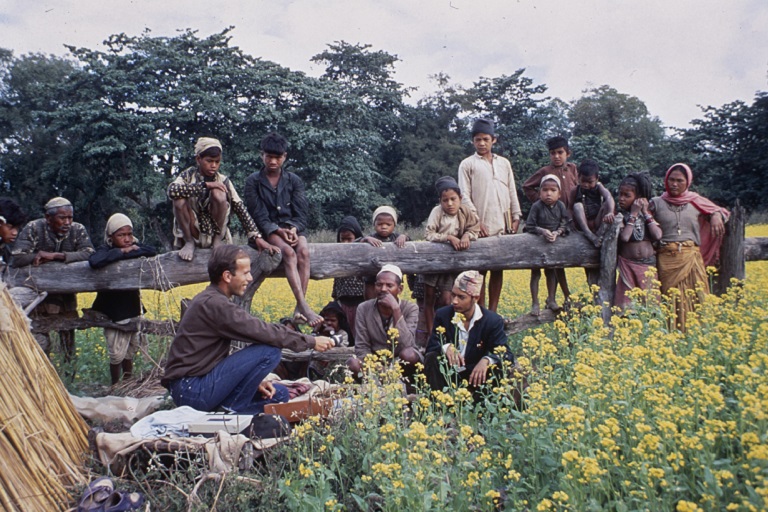The Archives of Traditional Music has grown from its beginnings as the personal collection of George Herzog in 1948 to become one of the largest archives of its kind in the United States. The archive now includes nearly 7000 wax cylinders, 4600 lacquer discs, 2625 aluminum discs, 250 wires, 18,000 open reel tapes, 7500 audiocassettes, 911 films, and 1500 video recordings. The Archives holds over 3,000 collections of field recordings. Add to this the many thousands of commercial recordings in our holdings and it brings the number of recordings in the Archives of Traditional Music to over 100,000, representing more than 40,000 recorded hours of content. Thirty-two percent of our holdings are unique and another twenty percent are rare and listening copies are available for approximately sixty-five percent of the cataloged recordings. In addition to audiovisual recordings, the collections include original manuscripts, transcriptions, correspondence, and field material from a number of early collectors, as well as pamphlets, articles, piano rolls, linguistic slip files, photographs, films, historic recording devices, and books.
Important historic collections encompass several thousand cylinder recordings of Native American music made by individuals who were among the first to make use of sound recordings to document the music and language of various cultures, including Franz Boas, George Amos Dorsey, and George Bird Grinnell. The Archives also houses the results of remarkable early expeditions to other parts of the world: the Jacob H. Schiff Expedition to China (1901-1902), carried out by Berthold Laufer, and the Morris J. Jesup North Pacific Expedition (1897-1902). Both were sponsored by the American Museum of Natural History, by whose courtesy the collections are on deposit at the Archives of Traditional Music. Over 30 years of research recordings by Franz Boas and his students are held at the Archives. Recordings made by anthropological scholars of later generations–Melville Herskovits, Frank G. Speck, Paul Radin, Natalie Curtis Burlin, and Harold Courlander–are also well represented.
Significant spoken-word collections include the Archives of the Languages of the World, collected by Carl and Florence Voegelin, the Nichols Collection of interviews with African authors, and the Dennis Duerden Collection of African drama and music, which features lectures, interviews, and readings by black poets and playwrights. Over 300 languages are represented in the Voegelin collections, 180 of which are now endangered or extinct, and the history and traditions of numerous African communities are represented in a large body of oral data.
Most of the Archives’ field collections are donated by researchers who deposit their original recordings in order to provide long-term preservation of the documentation of valuable cultural heritage and history. Commercial recordings are obtained through purchase or by exchange with or donation from institutions and private collectors. The Archives of Traditional Music welcomes well-documented research collections that represent ethnographic research that fits within our scope. We especially welcome collections associated with published research that is accompanied by rich supporting material. We also welcome commercial recordings that represent areas of our scope and that are not already a part of our collection.
Location:

